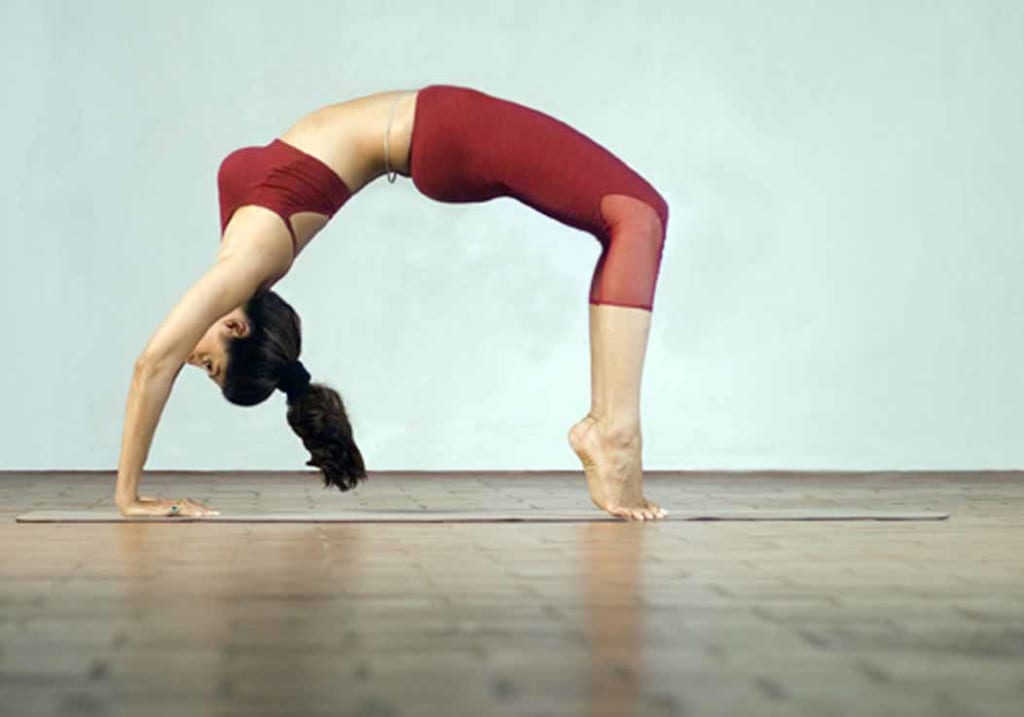Yoga and mindfulness
Yoga and mindfulness

Yoga and mindfulness are two practices that have gained popularity in recent years as a way to improve physical and mental well-being. Both yoga and mindfulness have been shown to have a wide range of benefits, including reducing stress, improving flexibility and strength, and promoting overall health and wellness.
Yoga is a practice that has its roots in ancient India and is known for its physical postures, or asanas, and its ability to improve flexibility, strength, and balance. Yoga is also known for its ability to reduce stress and promote a sense of calm and relaxation. Many people find that practicing yoga regularly can help to improve their mental and emotional well-being, as well as their physical health.
Mindfulness, on the other hand, is the practice of being present and aware in the moment. It's a form of meditation that encourages one to focus on the present and be aware of one's thoughts and emotions without judgment. Mindfulness has been shown to have a wide range of benefits, including reducing stress, anxiety, and depression, and promoting emotional well-being.
When it comes to yoga and mindfulness, one of the most significant benefits is the way in which these two practices work together. Yoga can be a powerful tool for promoting mindfulness, as the physical postures and breathing techniques used in yoga can help to bring focus and attention to the present moment. Mindfulness, in turn, can help to deepen the experience of yoga, as it allows one to be more present and aware of the body and the breath.
Incorporating yoga and mindfulness into your daily routine can have a profound impact on your overall health and well-being. Even a few minutes of yoga and mindfulness each day can help to reduce stress and promote a sense of calm and relaxation. If you're new to yoga and mindfulness, it's a good idea to start with a few basic postures and some simple mindfulness practices, such as deep breathing and body scanning.
Advantages of Yoga:
Improved flexibility, strength, and balance: Yoga involves a series of physical postures, or asanas, that can help to improve flexibility, strength, and balance. This can be particularly beneficial for older adults or those recovering from injuries.
Reduced stress: Yoga is known for its ability to reduce stress and promote a sense of calm and relaxation. Many people find that practicing yoga regularly can help to improve their mental and emotional well-being.
Improved cardiovascular health: Yoga can also help to improve cardiovascular health by reducing blood pressure and improving circulation.
Improved respiratory function: Yoga's focus on deep breathing can help to improve respiratory function, making it easier to breathe and promoting better lung function.
Low-impact exercise: Yoga is a low-impact exercise that can be suitable for people of all ages and fitness levels.
Disadvantages of Yoga:
Risk of injury: While yoga is generally considered safe, there is a risk of injury if proper form and technique are not used.
Limited cardiovascular benefits: Yoga is not as effective as other forms of exercise, such as running or cycling, for improving cardiovascular fitness.
Time-consuming: Yoga can be time-consuming, as it requires regular practice to achieve the full benefits.
Advantages of Mindfulness:
Reduced stress: Mindfulness can help to reduce stress, anxiety, and depression by promoting a sense of calm and relaxation.
Improved emotional well-being: Mindfulness can help to improve emotional well-being by promoting self-awareness and reducing negative thoughts and emotions.
Improved focus and concentration: Mindfulness can also help to improve focus and concentration, making it easier to stay on task and complete tasks more efficiently.
Low-cost: Mindfulness can be practiced for free, it doesn't require any equipment or special environment.
Disadvantages of Mindfulness:
Requires discipline: Mindfulness requires discipline and regular practice to achieve the full benefits.
Not always easy: Mindfulness can be difficult, especially for people who are new to the practice or who have difficulty quieting their minds.
It can be challenging for some people to find a quiet and comfortable place to practice mindfulness, especially in a busy and noisy environment.
It's always recommended to consult a healthcare professional before starting any new exercise or diet regimen.
In conclusion, Yoga and mindfulness are two powerful practices that can help to improve physical and mental well-being. Yoga can help to improve flexibility, strength, and balance, while mindfulness can help to reduce stress and promote emotional well-being. When practiced together, yoga and mindfulness can be a powerful tool for achieving overall health and wellness.





Comments
Ram Hariharan is not accepting comments at the moment
Want to show your support? Send them a one-off tip.